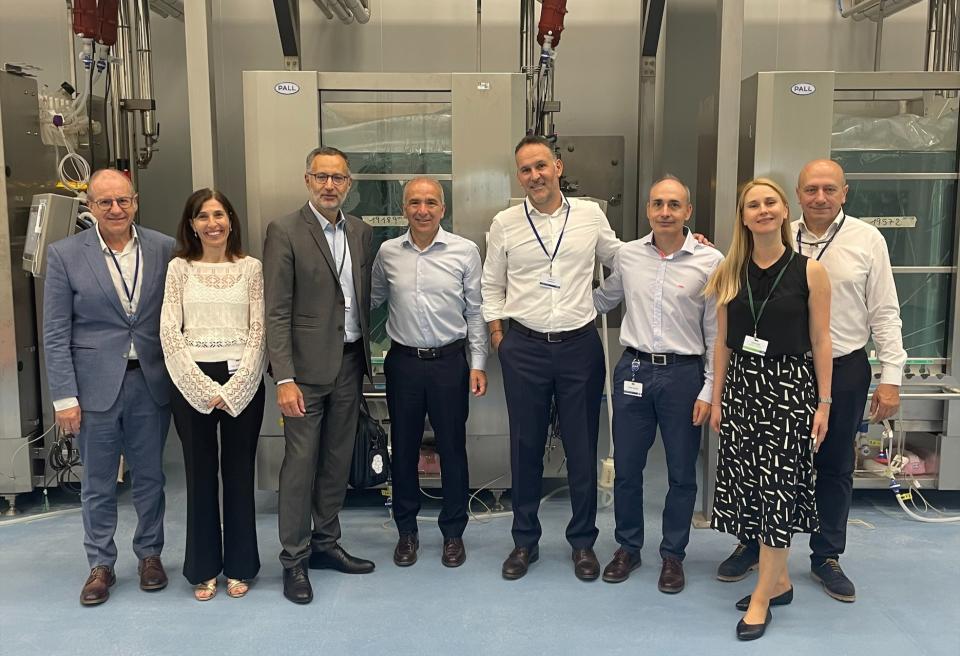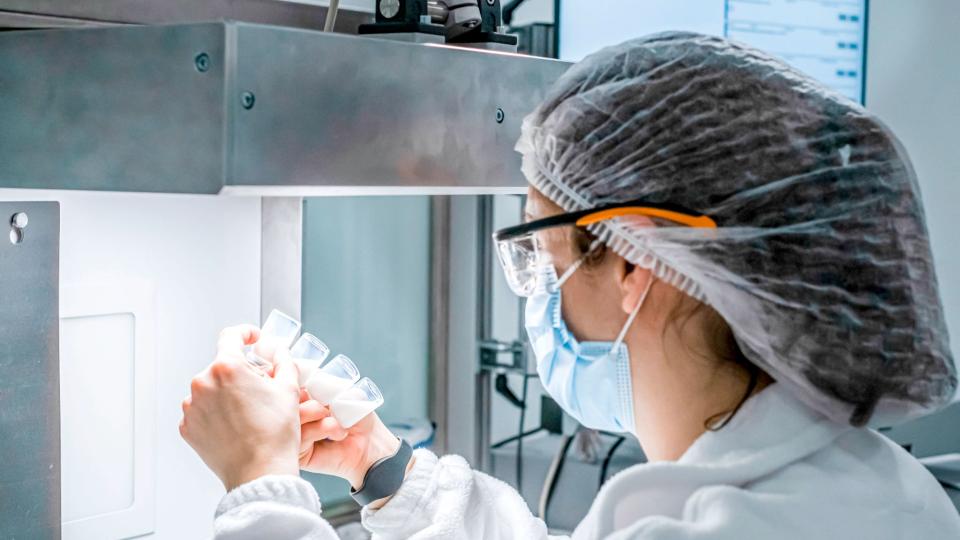GoodGut and Vall d'Hebron are studying the implementation of the first non-invasive diagnostic test to detect Irritable Bowel Syndrome
The biotechnology company GoodGut, which is part of HIPRA’s group, has initiated a study of the implementation of the RAID-Dx in clinical practice coordinated by the Vall d'Hebron University Hospital that it will be carried out in the outpatient clinics of the Digestive System Service of the same centre, as well as in the Primary Care Centres of the influence area of Vall d'Hebron: CAP Horta, CAP Chafarinas and CAP Sant Andreu, the three from Barcelona. About 300 patients with symptoms consistent with Irritable Bowel Syndrome (IBS) will participate in this study.
The study will be led by Dr. Javier Santos, physician of the Vall d'Hebron Digestive System Service, principal investigator of the research group in Physiology and Digestive Pathophysiology of the Vall d'Hebron Research Institute (VHIR) and the CIBER of Hepatic and Digestive Diseases (CIBEREHD) and opinion leader of the Irritable Bowel Syndrome (IBS), together with his team, composed of doctors Beatriz Lobo, Danila Guagnozzi, Carmen Alonso and Ronald Llerena.
RAID-Dx is the first non-invasive diagnostic test to positively diagnose IBS through the determination of the specific microbial signature of this pathology in faeces. In addition, this instrument developed by GoodGut allows discriminating this syndrome from other inflammatory intestinal diseases, such as ulcerative colitis and Crohn’s disease, which are associated with similar symptoms.
RAID-Dx diagnostic test use in primary care will allow to reduce the needed time to diagnose these patients and to obtain an optimal treatment for them, which would have to significantly improve their life quality. In addition, RAID-Dx use expects to avoid at least 30% of current diagnostic procedures, because it allows to discard other diseases and to expedite the referrals of these patients to specialized care thus improving the efficiency of the use of the resources of the health system. In this study, individuals previously diagnosed with IBS and presenting symptoms at the time they were included in the study, will undergo the RAID-Dx test to evaluate the clinical performance of the instrument. In addition, the impact on the quality of life of the patient will be measured based on the improvement in the diagnosis speed and access to treatment, as well as the savings that can represent. Nowadays, Irritable Bowel Syndrome affects about 11%[12,] of the European population and is within the ranking of the 10th most difficult diseases to detect, extending the diagnosis between 1 and 5 years.
About the Irritable Bowel Syndrome
Irritable Bowel Syndrome is a functional intestinal disorder characterized by the presence of recurrent abdominal pain associated with changes in the bowel rhythm, either in the form of constipation, diarrhoea, or both. In developed countries it has a high prevalence: only in Europe, it is around 11%. Accurate diagnosis is key to choosing the best therapeutic regimen for patients, but there is currently no test or test to diagnose this syndrome. Currently, the diagnosis of IBS is based on the characteristic symptoms that have been synthesized in the Rome IV criteria, although this does not exempt from carrying out the pertinent explorations to establish the differential diagnosis with some organic pathologies that can manifest themselves in a similar way.
About GoodGut
The biotechnology company GoodGut, acquired by HIPRA in 2021, is focused on the development of diagnostic and treatment products for digestive diseases based on the intestinal microbiota that allows obtaining an accurate diagnosis, reliable and economical for the healthcare system and improving the quality of life of patients with compromised digestive health.
GoodGut was created in 2014 as a spin-off of the University of Girona (UdG) and the Biomedical Research Institute of Girona Dr. Josep Trueta (IDIBGI) to transform the knowledge obtained into technological solutions of high impact for society. Nowadays, it has already developed three diagnostic products with presence in addition to 79 centres in the Spanish state and three others that are being studied.
References:
1. Canavan C, West J, Card T. The epidemiology of irritable bowel syndrome. Clin Epidemiol. 2014b;6:71-80.
2. Lovell RM, Ford AC. Global prevalence of and risk factors for irritable bowel syndrome: a meta-analysis. Clin Gastroenterol Hepatol. 2012a;10(7):712-21







